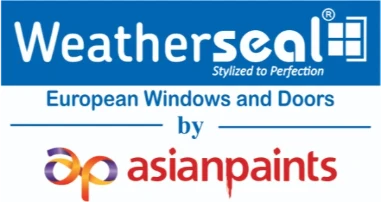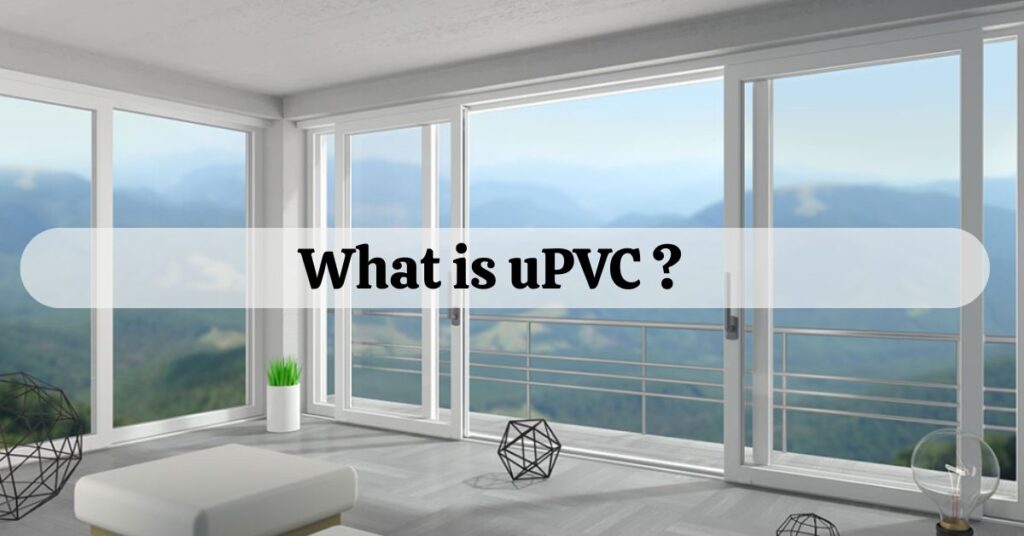What is UPVC? Meaning, Full Form and Benefits
When it comes to modern construction and home improvement, uPVC windows & doors are one of the most popular choices worldwide. But many homeowners still wonder: “What is uPVC?” Let’s break it down in simple terms and explore why this material is such a game-changer.
uPVC Full Form and Meaning
The uPVC full form is Unplasticized Polyvinyl Chloride. In simple words, uPVC meaning refers to a strong, rigid type of plastic made by polymerizing vinyl chloride without adding plasticizers (softening agents).
This makes uPVC a highly durable, low-maintenance, and weather-resistant material—perfect for windows, doors, pipes, and cladding. Unlike wood, uPVC does not rot, warp, or need regular painting, making it an ideal choice for long-term use.
A Quick History of uPVC
Polyvinyl Chloride (PVC) was first discovered in 1835 by Henri Victor Regnault. Later, scientists refined it and created different versions, including uPVC (unplasticized PVC), which became widely used in the construction industry.
Today, uPVC is commonly used in window and door frames across Europe, the U.S., and Asia due to its strength, cost-effectiveness, and sustainability.
What Are uPVC Windows?
uPVC windows are window frames made from unplasticized polyvinyl chloride. They are designed to be durable, energy-efficient, soundproof, and easy to maintain.
Here’s why they’re so popular:
- Energy Efficiency: uPVC windows have excellent thermal insulation, helping reduce electricity bills.
- Weather Resistance: They can withstand heavy rains, wind, and UV rays without damage.
- Noise Reduction: Good-quality uPVC windows can reduce external noise by up to 30–40 decibels.
- Low Maintenance: No repainting, varnishing, or polishing required—just occasional cleaning.
Types of uPVC Windows
If you’re considering installing them in your home, it’s important to know the different types of uPVC windows available:
1. Sliding Windows
- Glide horizontally on tracks
- Ideal for rooms with limited space
- Provide ample light and ventilation
2. Casement Windows
- Open outward like a door
- Offer unobstructed views and great airflow
- Create an airtight seal when closed
3. Tilt and Turn Windows
- Can tilt inward from the top or open fully from the side
- Easy to clean and very versatile
- Excellent for high-rise apartments
4. Bay Windows
- Extend outward from the wall to create extra space
- Bring in more natural light and offer panoramic views
- Add elegance to living or dining rooms
5. Arch Windows
- Custom-designed curved windows for a stylish look
- Perfect for homes that want a unique architectural feature
6. Villa Windows
- Larger, premium windows with multi-locking systems
- Great for villas, bungalows, and luxury homes
7. Combination Windows
- Mix of two or more window types (e.g., fixed + sliding)
- Best for large openings where you want flexibility
Benefits of Choosing uPVC Windows
- Durability: Resistant to corrosion, termites, and moisture
- Cost-Effective: Long-lasting with minimal maintenance costs
- Eco-Friendly: 100% recyclable and sustainable
- Enhanced Security: Strong frames with multi-point locking systems
Common Myths About uPVC Windows
Myth: uPVC windows are weak.
Truth: uPVC is reinforced and can withstand strong winds and impacts.
Myth: They fade or turn yellow over time.
Truth: High-quality uPVC windows retain their color and finish for decades.
Myth: They are expensive.
Truth: uPVC windows are more affordable in the long run due to low maintenance and energy savings.
Frequently Asked Questions
Q1: What is the difference between PVC and uPVC?
PVC contains plasticizers and is flexible, whereas uPVC is rigid and stronger, making it better for windows and doors.
Q2: Are uPVC windows good for hot climates?
Yes, uPVC windows provide thermal insulation and help keep interiors cooler, reducing AC costs.
Q3: How long do uPVC windows last?
With proper installation and minimal maintenance, uPVC windows can last 20–30 years without losing their strength or shine.
Q4: Are uPVC windows eco-friendly?
Yes. uPVC is 100% recyclable and contributes to energy savings, making it a sustainable choice.
Q5: Can uPVC windows handle heavy rains and wind?
Absolutely. High-quality uPVC windows are designed with hurricane bars and double seals, making them perfect for coastal and high-rise buildings.
Q6: Do uPVC windows require painting or polishing?
No, they do not. They maintain their finish for years and only need regular cleaning with mild soap and water.

